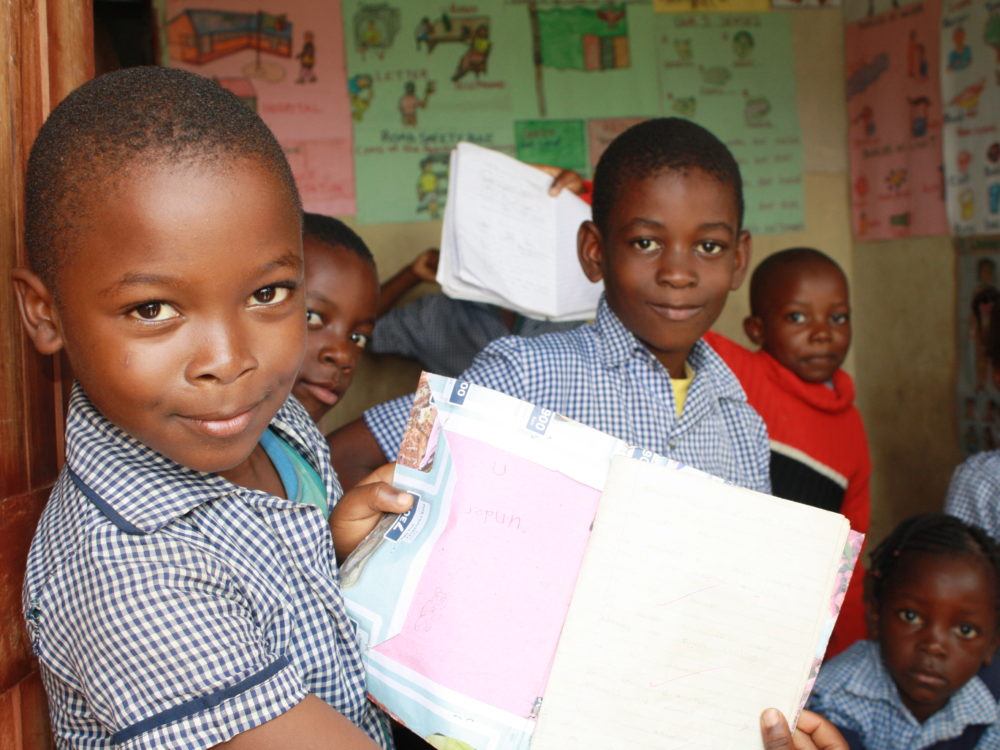
Lifeline Energy: Tackling energy poverty for women and girls
Radio remains the primary means of communication in Africa. In rural areas electricity is non-existent and toxic batteries are unaffordable. Lifeline Energy designs and distributes fit-for-purpose solar and wind-up MP3s and radios for distance education programmes across sub-Saharan Africa, impacting millions. Lifeline Energy’s clean energy LED lights improve the quality of life and livelihoods after dark for vulnerable women, children and refugees as these eliminate the serious health, environmental and fire risks created by fuel-based lighting.
Impact
One MP3 or radio provides 60 students with sustainable educational access. For example, we know that 10,000 Prime radios are reaching over 600,000 Malawian primary school learners, given the large class sizes. Lights, for family use, average of 5 people each and enable a wide range of productive nighttime activities.
Beneficiaries
Lifeline Energy supports the vulnerable and isolated groups that struggle to access information, education, light and energy in sub-Saharan Africa. We focus on orphans and vulnerable children, disadvantaged youth, rural women, refugees and people who are ill. We strive to ensure that at least 70% of our beneficiaries are women and girls. For income generation initiatives we will focus on women and older girls.
Sustainability
The robustly engineered radios and lights last for over four years, longer with proper use and care, thereby providing sustainable, dependable and on-demand access to information, education and light.
Innovation
At Lifeline Energy, we believe that the most complex and intractable problems – from poverty to environmental degradation – are capable of creative resolution. This impels us to seek opportunities to place innovative and clean energy technologies at the service of even the most remote, forgotten and disenfranchised sectors of society.
We continuously develop and enhance the quality of our products by conducting focus group research and impact evaluations in the field as well as incorporating the feedback received from various groups of beneficiaries. We also do baseline and end line surveys that measure how many people have been impacted by our radios and lights, what new information they have gained and how the targeted population’s lifestyles have changed or been influenced at multiple levels – in terms of academic, social, health, economic and environmental impacts. Beneficiaries are interviewed in depth, and school grades, health conditions, household income and savings achieved are some of the indicators used to measure improvement in the quality of life, academic performance and economic empowerment.
Scalability
Lifeline Energy’s projects can be scaled up very easily, to impact more than the initial target area or group, as there is a great need for both solar-powered radios and lights. Millions of African children are denied access to formal education, 60% of whom are girls. If trends continue, sub-Saharan Africa will not achieve universal primary education until 2130.
Radio distance learning and the ability to replay educational broadcasts on-demand provides high quality basic education to large numbers quickly and efficiently, as one radio is listened to by more than 60 students. Lifeline Energy is working with different Ministries of Education and international NGOs to integrate Prime radios and Lifeplayers into classrooms to accelerate the education process.
Source of funding
Lifeline Energy has a dual financial model –
- We raise funds to implement projects and cover our overhead costs through donations and grants. These enable us to provide clean energy radios and lights and help improve the lives of vulnerable populations.
- In addition, Lifeline Technologies, our newly established product development and trading arm, creates an independent revenue stream. Lifeline Technologies designs, develops, markets and sells innovative products to the humanitarian and telecoms sectors. To achieve cost efficiencies, both Lifeline Energy and Lifeline Technologies share supply chain, logistics and back office functions, including finance and administration. Any profits earned by Lifeline Technologies are invested in Lifeline Energy, thereby creating a virtuous cycle.